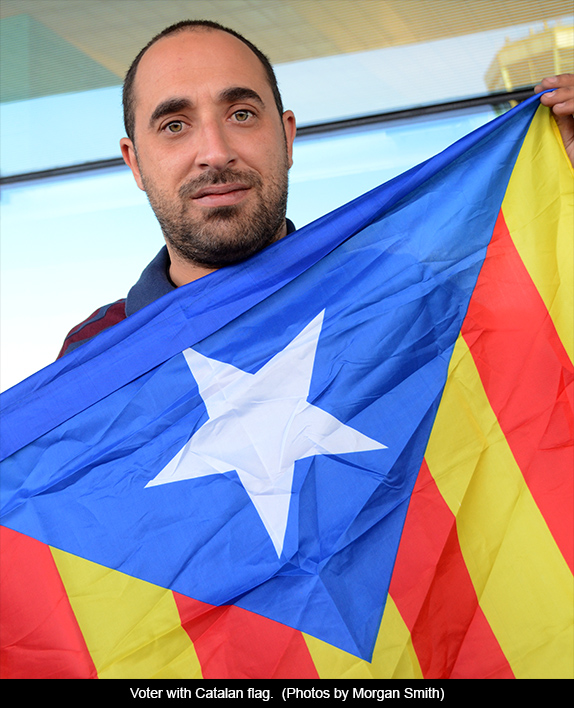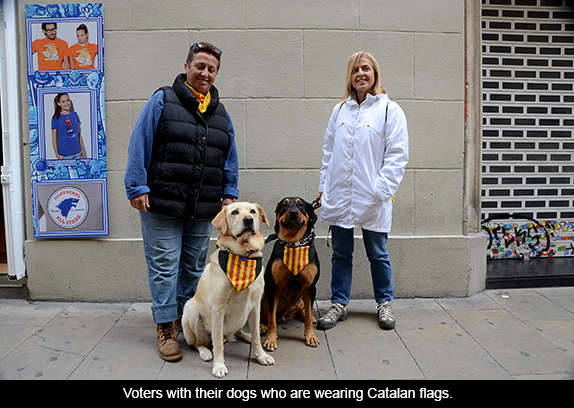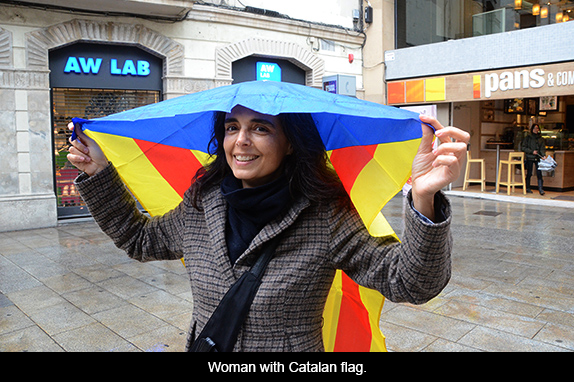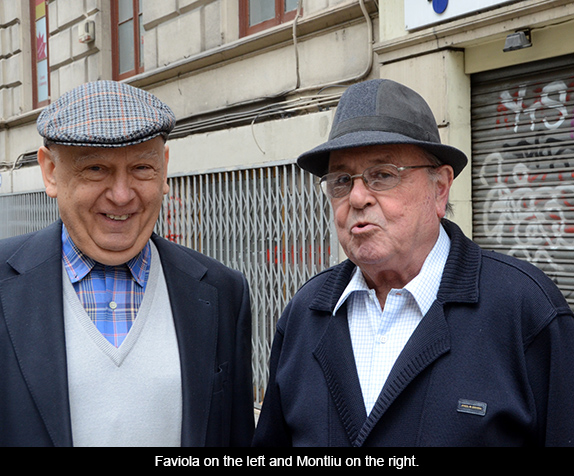
“After I vote, I look up into the sky and say a prayer that it will turn out alright,” says a Spaniard named Francisco Noviola. It’s November 9 and I’m in Barcelona, Spain to observe the referendum on independence that was taking place throughout the region of Catalonia, of which Barcelona is the capital. Noviola was one of the many voters I interviewed.
Although we Americans have a dream that we can bring people together from different backgrounds, religions and parts of the world to live in peace and although that dream has been largely successful, sadly our model is not one that is followed in most of the world. The tendency is to break apart rather than to compromise and work together in good faith. The Catalonia/Spain independence issue is just one of many such situations, for example.
Imagine how different Iraq would be if it could break up and Kurds, Sunnis and Shia could live apart.
Look at Belgium with the split between French and Dutch speakers or Quebec separatism in Canada.
See the successful splitting of Czechoslovakia into the Czech and Slovak republics or the much bloodier breakup of Yugoslavia.
On a much more local level, consider the recent effort in Colorado whereby ten counties wanted to “secede” and form a new state called North Colorado.
Although no one at our national level is talking about secession, look at the increasing hostility between Republicans and Democrats and how that is driving us apart.

Spain is special to me because my wife and I lived in Barcelona from 1999 to 2004 and we’ve been traveling to Spain since 1966 when it was still a dictatorship under Francisco Franco; I’ve also taken numerous delegations of Colorado companies to Spain to develop new business opportunities. So I am deeply sympathetic to its current and devastating economic crisis. The unemployment rate is 23.67% as compared to 10.4% in France, 5.15% in Germany, 12.6% in Italy and 5.8% in the US. Although this figure is somewhat exaggerated because so many people work “off the books” or for cash or barter, it is still excruciating, especially for young people. In fact, youth unemployment (ages 15-29) was 53.74% last September.
A Catalan independence movement has been simmering for decades, even centuries.
When we lived there, we saw how many Catalans simply reject the idea that they are part of Spain. Take immigration, for example. When Catalans would ask us about the immigration debate in the US, they would always say that they too had immigration problems. So I would ask where their immigrants came from.
“Andalusia,” they would say.
“But that’s part of your country,” I would answer. “In the US, we wouldn’t say that someone who had moved to New Mexico from New York, for example, was an immigrant.”
Then I would ask when these Andalusians had come to Catalonia.
“After the Spanish Civil War in the 1930s and 40s,” would be the answer. In other words, even though their children and grandchildren were born in Catalonia, these Andalusians were all still considered immigrants!

The issue has now exploded now because of the financial crisis. Specifically, the Catalan government, deeply in debt because of the decline in property values as well as its excessive spending, believes that the Spanish central government collects too much in taxes and redistributes back to Catalonia too little. This is a consuming issue but a damaging one because it has shifted attention away from two much more serious problems – endemic corruption and the economy.
The November 9 vote itself was simply advisory; actual secession would require action on the part of all Spaniards, something that simply isn’t going to happen. Over the course of three days, I talked to cab drivers, waiters, friends who live in Barcelona as well as voters like Noviola or his friend, Montlui who claimed he could trace his Catalan roots back to the 13th century. In fact, the people I interviewed at the “street level” were much more thoughtful than the comments in the papers from political leaders. The actual voting process was extremely impressive as people waited patiently and cheerfully in a light rain with their dogs and children. Of 6 million eligible voters, 2.3 million voted or about 37% and 81% of those voted for independence. Afterwards, the both separatists or “independistas” and the central government claimed victory, the separatists pointing to the 81% and the central government arguing that the low turnout made it meaningless.

What next? The real issue is taxes. Catalans rightfully want the kind of state-level (or in their case, regional-level) taxing powers that states in the US have. If this could be accomplished, the independence movement would be largely defused and Spain could refocus on the more important issues of corruption and the economy. Unfortunately, it’s not going to happen because there isn’t the money; the central government is too dependent on tax revenues from Catalonia, its richest region to agree to any change that would reduce the revenue it receives. In addition, there isn’t the political will to negotiate. People like Noviola and Montliu and the other men and women I interviewed could work something out but not the political leaders of Catalonia and Spain. So this process of breaking apart will continue to grind along, sidelining other more important issues.



Responses to “Breaking Apart - Sentiments of Secession in Spain”